Climate Emergency Appeal
Climate change is causing widespread devastation across the world with an increase in extreme weather events such as storms, floods and drought impacting people worldwide.
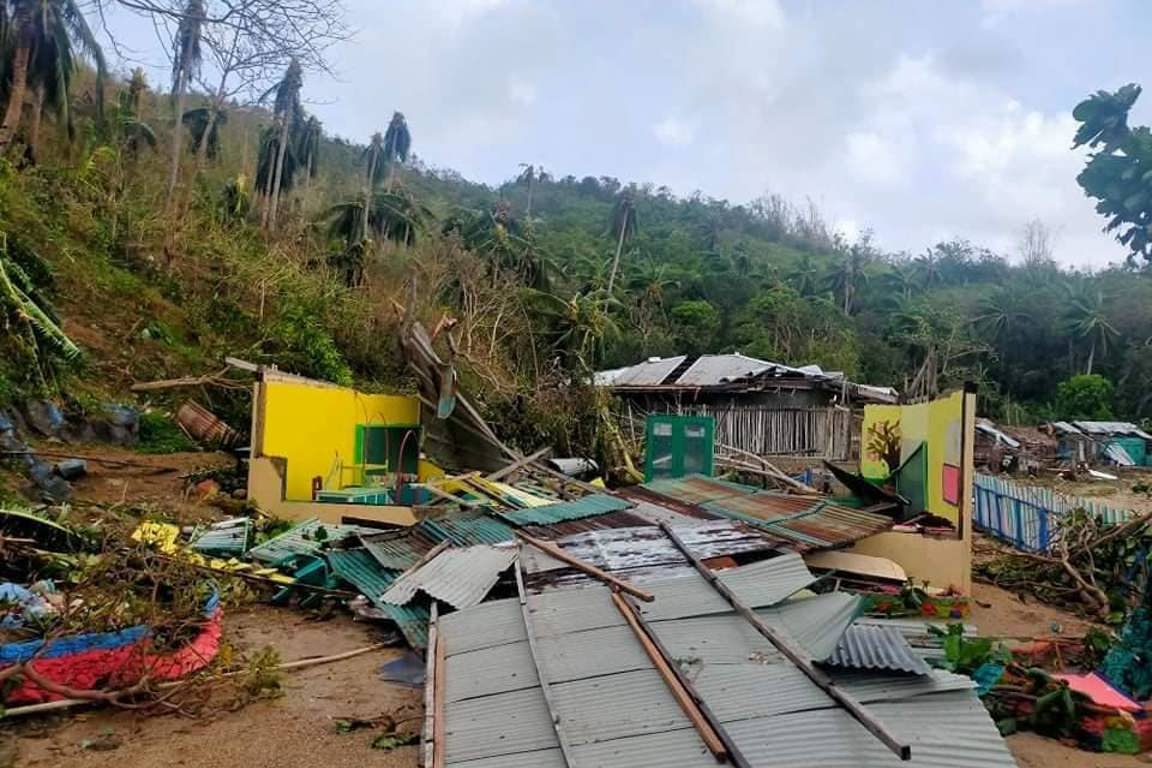
Damage from Typhoon Rai in Dumaran, Palawan, The Philippines, 2021. Photo: Raymond Labadan
Take action on climate change
Your donation can support communities vulnerable to the impacts of climate change to prepare, respond and recover from disaster.
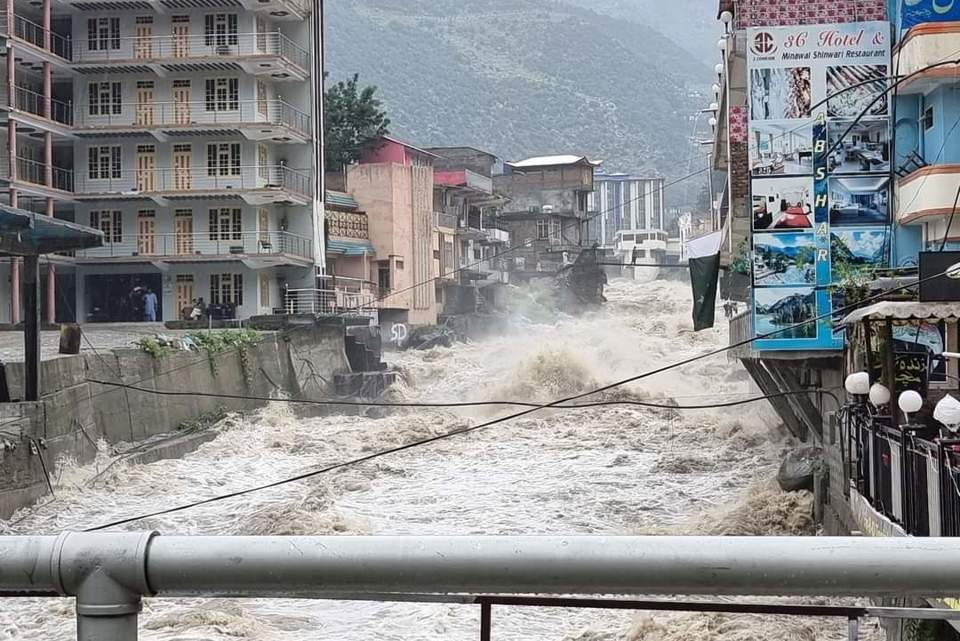
Severe harsh water flow from the 2022 Pakistan Floods. Photo: Caritas Pakistan
The climate crisis is causing climate emergencies
In 2022, Pakistan faced the worst flooding in its history. 33 million people were impacted with 116 out of 160 districts declaring a state of emergency.
Due to climate change a dangerous combination of factors combined to create the perfect storm for deadly flooding in Pakistan:
- Some of the highest ever recorded temperatures earlier that year
- A damaging drought which hardened the soil
- Highest recorded rainfall in decades
The combination of parched, hardened soil, followed by an immediate, brutal rainfall meant that the ground was unable to absorb and contain the water. This climate catastrophe has led to floods on an unprecedented scale.
Disasters like this are becoming more common as the climate crisis gets worse. Communities vulnerable to the impacts of climate change need your support.
Climate change and extreme poverty
Natural disasters driven by climate change can cause widespread devastation to communities already dealing with the challenges of extreme poverty. People who live in communities with poor infrastructure and inadequate health care are particularly vulnerable to natural disasters. Between 1998-2018, 91% of storm-related fatalities were recorded in low- or middle-income countries.
In the immediate aftermath of a disaster, people without access to clean water may risk contracting waterborne diseases. Mass hospitalisations can also put enormous strain on a country’s health system, leaving vulnerable communities without access to essential health care.
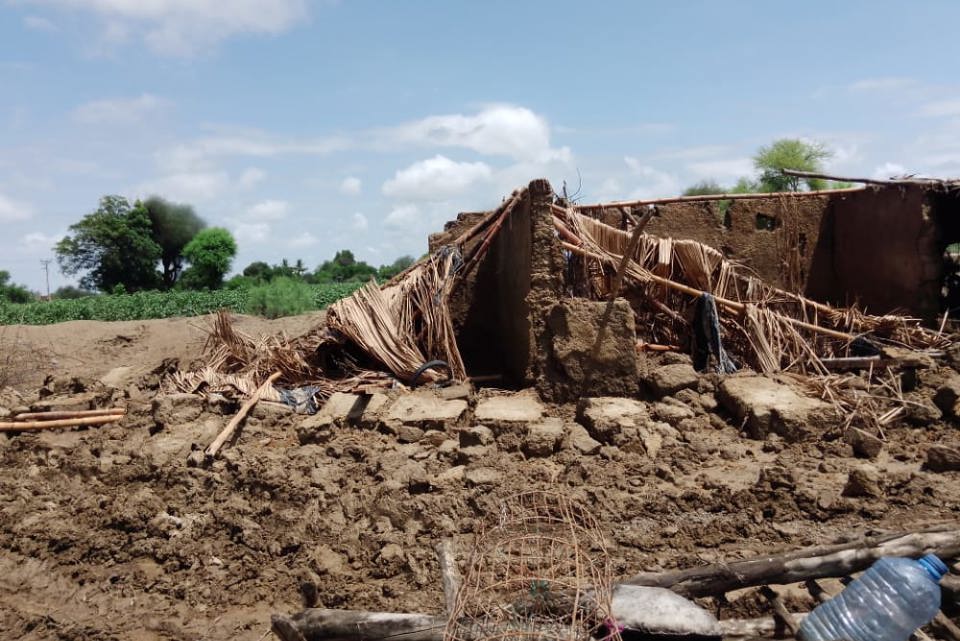
Damage from the 2022 Pakistan Floods. Photo: Caritas Pakistan
What your support can help to provide:
Emergency Shelter
Access to Clean Water
Food and Other Essentials
Disaster Risk Reduction Training
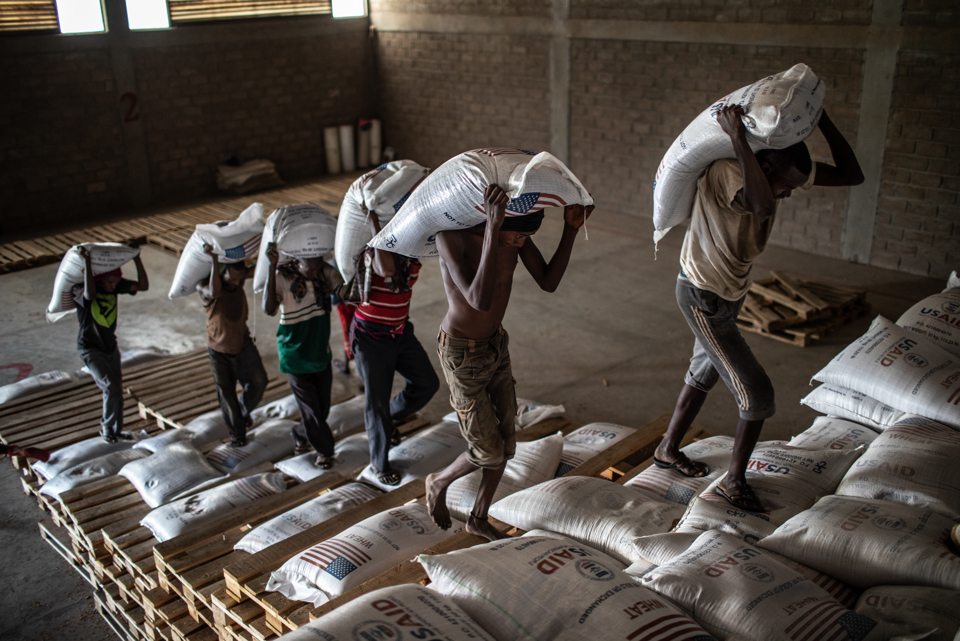
Emergency food assistance of wheat, legumes and cooking oil to food insecure families. Photo: CRS
East Africa Food Crisis
Over 81.6 million people are facing high acute food insecurity across eastern Africa.
The region is facing multiple challenges at once, exacerbated by drought and flooding. Approximately 7 million children under 5 years are acutely malnourished in Ethiopia, Kenya and Somalia - this includes more than 1.7 million with severe acute malnutrition.
- In Ethiopia, communities continue to suffer from the devastating drought affecting the Horn of Africa and are bracing for a likely fifth consecutive failed season – with the October- December 2022 rains beginning poorly and forecasts indicating they are likely to underperform.
- In Somalia, ongoing drought conditions in the Gedo region have increased the effects of malnutrition.
- Tens of thousands of displaced families are unable to sow crops during the current rainy season - reducing next year's harvest even more.
Our partners are on the ground working to support vulnerable communities in eastern Africa.
In Ethiopia, our partners are providing urgent food and trucking emergency water to the most drought-affected communities.
In Somalia, our partners are by improving the nutrition status of malnourished children under 5 in targeted communities, with over 9,000 people already helped.
In northern Kenya, our partners are supporting school feeding programs, which ensure children continue to go to school, are fed, and their families do not have to sell their livestock to be able to survive.
Extreme weather events increasing
“Listen to the cry of the Earth and the cry of the poor, who suffer most because of the unbalanced ecology”- Pope Francis
Extreme weather events and climate emergencies have increased in frequency, intensity and severity over the past two decades, hitting vulnerable communities disproportionately hard, according to the United Nations.
Environmental changes affect everyone – but for vulnerable, marginalised communities, the impact of natural disasters can drive communities further into poverty. In low-lying communities, rising sea levels are threatening to submerge entire villages, forcing people to relocate. Destructive cyclones, floods and earthquakes are devastating countries in Asia and the Pacific. Prolonged droughts, exacerbated by environmental changes, have led to food shortages in many parts of Africa.
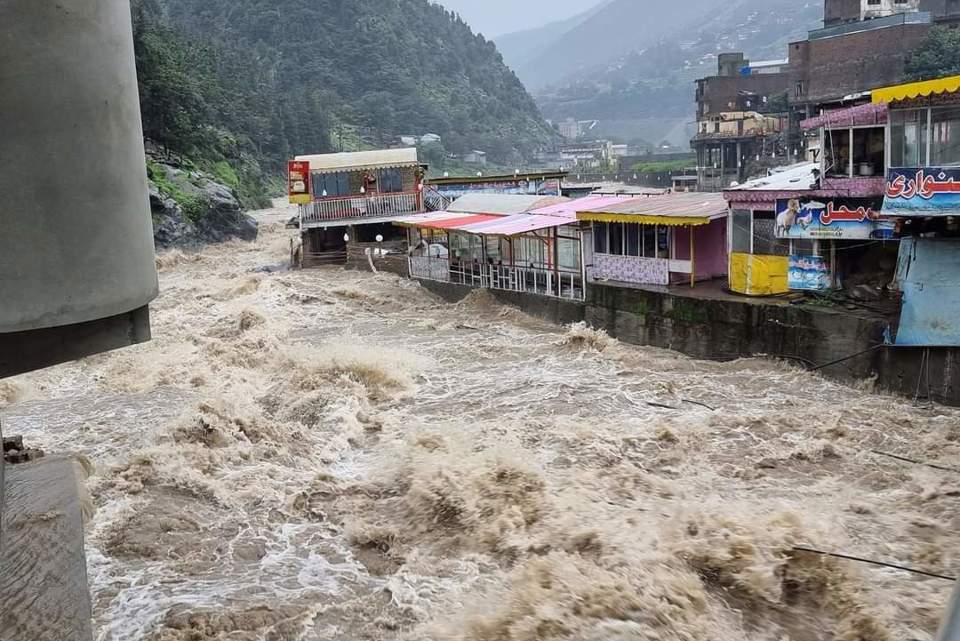
Flood water hitting a market in the 2022 Pakistan Floods. Photo: Caritas Pakistan
"Climate change is happening now and to all of us. No country or community is immune. And, as is always the case, the poor and vulnerable are the first to suffer and the worst hit."
Priscilla's Story
Priscilla lives with her husband Charles and two of their grandchildren Obry and Jayden in the Hwange region, in north-west Zimbabwe. In Hwange, the impacts of climate change are exacerbating food insecurity in vulnerable communities. This can be seen in the erratic rainfall patterns, prolonged dry spells, poor agricultural soils and high temperatures in the region.
With your support and that of our partner Caritas Hwange, Priscilla and her community learnt conservation farming to grow drought-resistant crops. From her increased harvest, she was able to sell her crops and start poultry farming, selling eggs to grow her income stream and helping pay for her grandchildren’s education. Caritas Hwange also helped rehabilitate the dip tank in her community so that Priscilla’s cattle can be healthy and free from tickborne diseases.
With the knowledge and skills acquired through the program, Priscilla and her family have a safety net to protect them during drought.
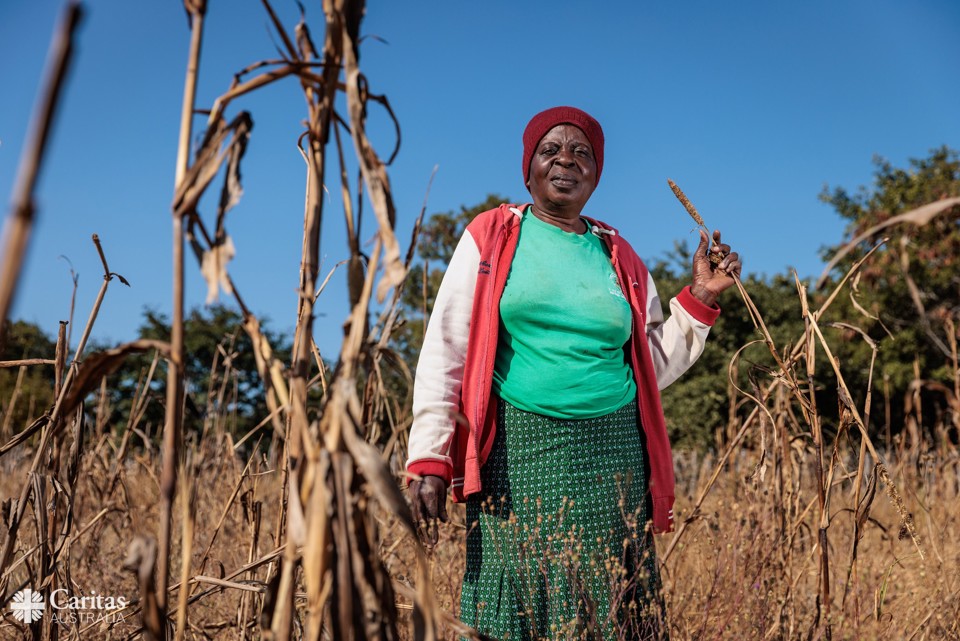
Priscilla inspects her drought affected fields of millet next to her home in Hwange district, north western Zimbabwe. Photo: Richard Wainwright/Caritas Australia
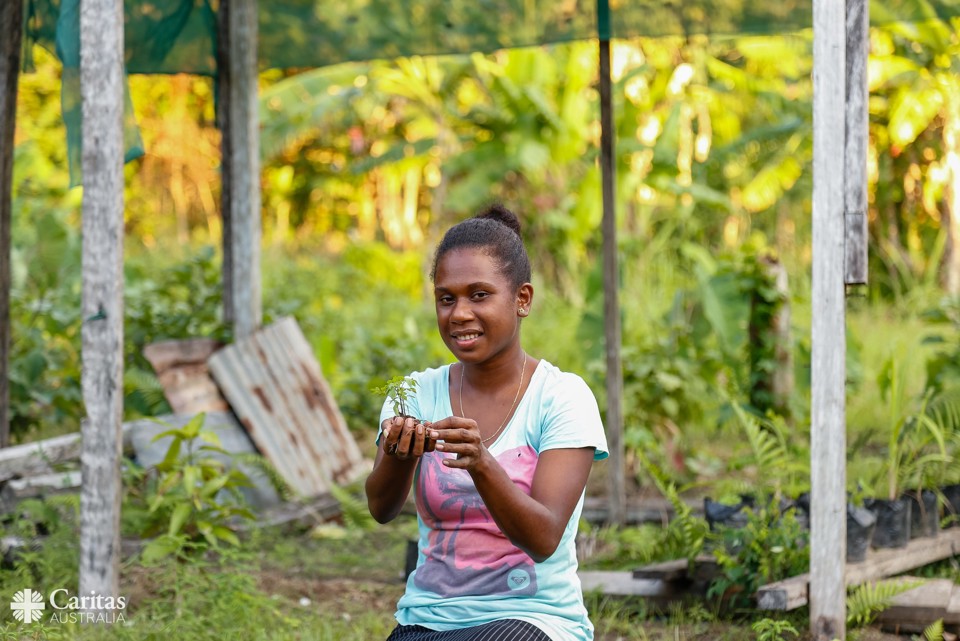
Shaniella from the Solomon Islands in the school garden, rebuilt following cyclone and landslide damage. Photo: Neil Nuia
Shaniella's Story
Shaniella grew up in a remote village in the Solomon Islands in a province which has limited educational and job opportunities – and one of the country’s highest poverty rates. After leaving school, she decided to move closer to the capital city, Honiara, to study hospitality and tourism. However, her vocational training school was hit by a landslide and cyclone in quick succession, destroying its water supply system and the vegetable garden that it relies on for food.
With your generous support, Caritas Australia has helped the school to install water tanks, re-establish its garden and provided training in disaster risk reduction. Shaniella can now complete her job skills training and the school has enough food and water for its students. She is also better prepared when disaster strikes and can share her knowledge with her community back home.

Impacts of tsunami in Fiji. Photo credit: Caritas Fiji.
Where does my donation go?
The funds you donate to this appeal go to Caritas Australia’s Emergency Response Fund and will be used to provide humanitarian assistance to communities affected by this crisis. Should circumstances prevent us from delivering aid to this emergency, or if excess funds remain after the crisis, donations will be directed to other emergencies where Caritas has humanitarian operations.












